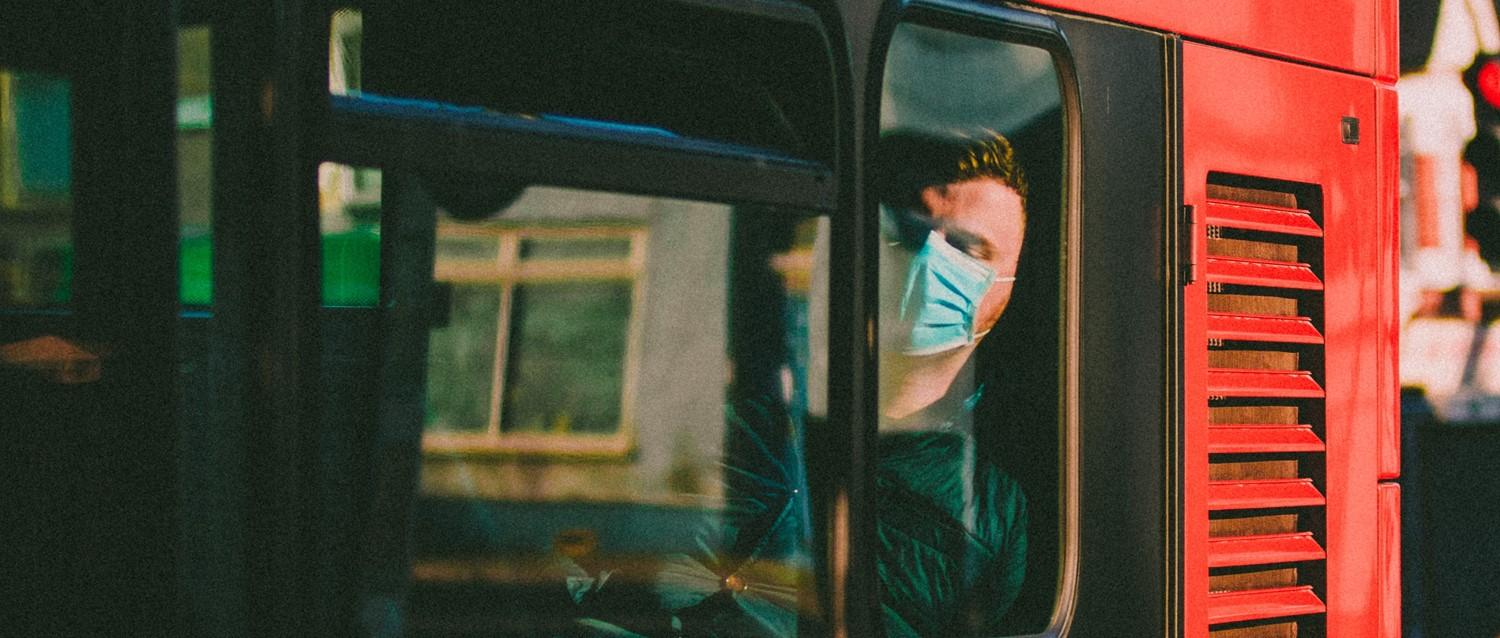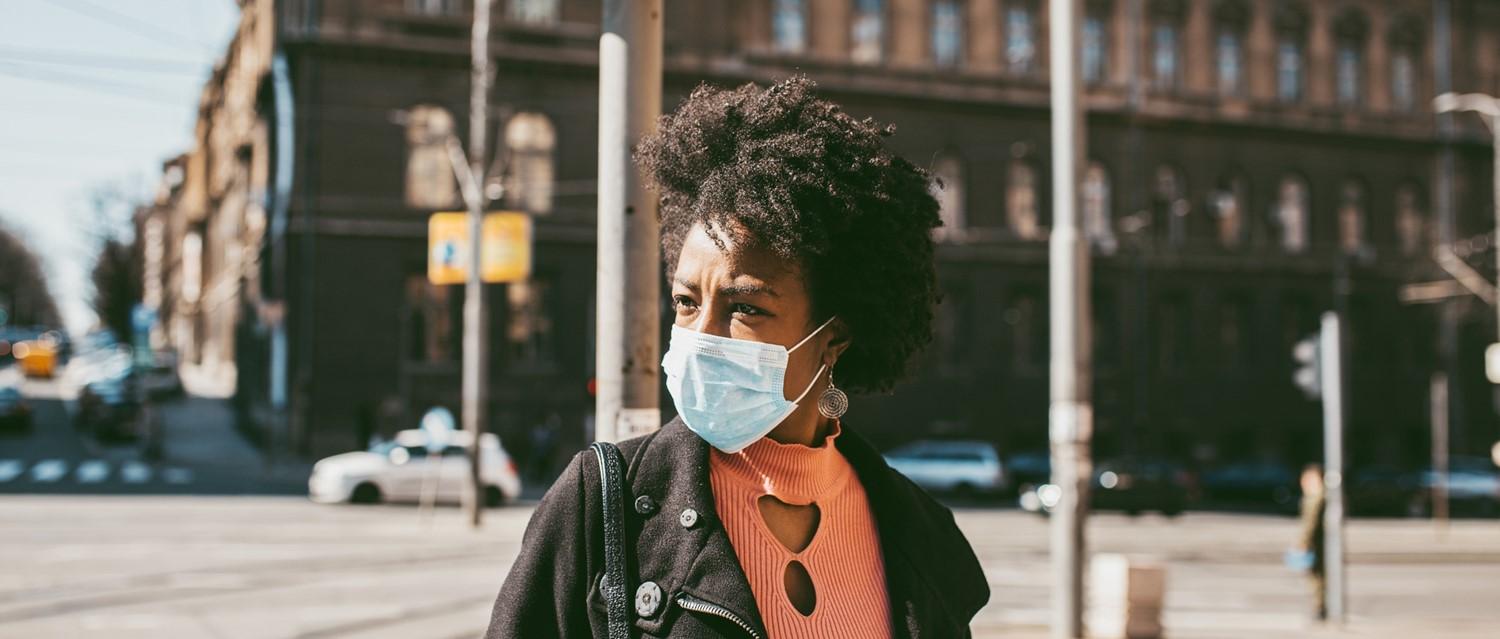
How to reduce your risk of coronavirus on public transport
Peer reviewed by Dr Sarah Jarvis MBE, FRCGPLast updated by Andrea DowneyLast updated 19 Aug 2020
- DownloadDownload
- Share
As lockdown restrictions continue to be eased across the country, more and more people are using public transport again. But for many this is an anxious experience, especially after so many months of avoiding tubes, trains and buses.
In this article:
We all know the tube and other public transport services are riddled with germs anyway. But in the midst of a pandemic it's understandable that concerns about bugs and COVID-19 are heightened.
Dr Mark Ali, medical director of Harley Street Clinic, and Tautvydas Karitonas, research and development manager for UK decontamination and infection prevention company Inivos, explain what you can do to reduce your risk on public transport.
Continue reading below
Cover up
First, and foremost, the only precaution you're legally required to take is to wear a face covering. As of July 24, it is mandatory to wear a mask on public transport and in shops, except for children under the age of 11 (5 in Scotland) and those with disabilities or certain health conditions, such as respiratory or cognitive impairments that make it difficult for them to wear a face covering.
Whilst there is very limited evidence that wearing face coverings will protect you from the virus, they help protect others from the potential that you may be carrying the virus. And wearing a face covering is no substitute for other precautions.
"To ensure a safe journey, it is essential that in addition to wearing a face mask, people avoid touching their eyes, mouth and face. They should socially distance from others whilst on board," Karitonas says. You should stay 2 metres away from people outside of your household wherever possible.
"Any high touch point areas or objects that experience frequent contact - such as grab handles, poles, door handles and seats - are at risk of exposure to COVID-19 and offer opportunities for the virus to spread."
Dr Ali agrees, adding that you should wash your hands as often as possible.
"People should be fastidious about hygiene and take care not to touch surfaces and then touch their mouth, nose or eyes. Wash your hands immediately after travelling and avoid densely packed areas," he adds.
Be sure to carry hand sanitiser or wipes with you wherever you go so you can keep your hands germ-free as much as possible. Hand sanitisers should contain at least 60% alcohol in order to be effective against viruses like coronavirus. Many stations and transport hubs have installed hand gel dispensers, but it's best not to rely on those to be full all the time.
Patient picks for COVID-19

Chest and lungs
How to cope with a fear of leaving lockdown
As the English lockdown rules change slightly and we are able to begin cautiously resuming some aspects of normal life, it's hardly surprising that some of us feel a little bit worried about what lies ahead. But while it's sensible to be cautious and stick to medical advice, what happens if our anxiety becomes overwhelming?
by Gillian Harvey

Chest and lungs
COVID-19
COVID-19 is an infectious disease caused by a virus that was first identified in December 2019 in Wuhan, China. This leaflet deals with the symptoms, causes and treatment of COVID-19.
by Dr Doug McKechnie, MRCGP
Tube, bus or taxi?
It's no secret that some transport services are dirtier than others - anyone who has experienced the tube at rush hour knows just how many germs are around.
Unfortunately, that's no different when it comes to coronavirus.
"The tube is the worst as there is no real social distancing. Aeroplanes can also be very densely packed," Dr Ali says. "The bus is better and taxis are even better, especially as both the driver and the passenger are wearing masks."
Karitonas reassures that public transport is deep cleaned regularly to avoid spread of COVID-19, meaning that as as long as you're careful with hygiene your risk will be minimised.
"Where possible, it is safest to walk or cycle. However, if you must use public transport, then it is best practise to socially distance from others and avoid busy routes and times, if you can," he explains.
"Transport heads should reduce the risk of travellers being exposed to traces of the virus on surfaces by decontaminating and disinfecting vehicles and stations regularly."
Continue reading below
Extra measures
You can also check transport operators websites, including Transport for London or National Rail, to keep updated on the latest guidance.
It may be worth considering getting tested if you think you've had the virus in the past, Dr Ali says.
"The antibody test looks for evidence of an immune response to COVID-19 and lets people know whether they have previously been exposed to COVID-19 in the past," he explains. However, it's extremely important to realise that having antibodies does not guarantee immunity - you still need to behave as if you're susceptible to infection.
The swab test tells you if you're infected with coronavirus right now, and it's essential to self-isolate and get tested straightaway if you have any symptoms. But it's important to remember it's possible to be infectious without having symptoms.
"As we progress into autumn we expect the numbers of people being tested regularly to increase," Dr Ali adds.
"Analysis from Imperial College London suggests that testing healthcare workers weekly would reduce transmission by a further 16-23% on top of self-isolation based on symptoms."
If you can't avoid public transport but you're anxious about taking it, you may want to avoid public transport at peak hours to reduce your exposure to other people.
But, until the guidance changes, if you are keeping socially distant, wearing a mask (unless exempt) and using hand sanitiser before and after your journey, then you're already doing all you can to protect yourself and others.
Article history
The information on this page is peer reviewed by qualified clinicians.
19 Aug 2020 | Latest version

Ask, share, connect.
Browse discussions, ask questions, and share experiences across hundreds of health topics.

Feeling unwell?
Assess your symptoms online for free